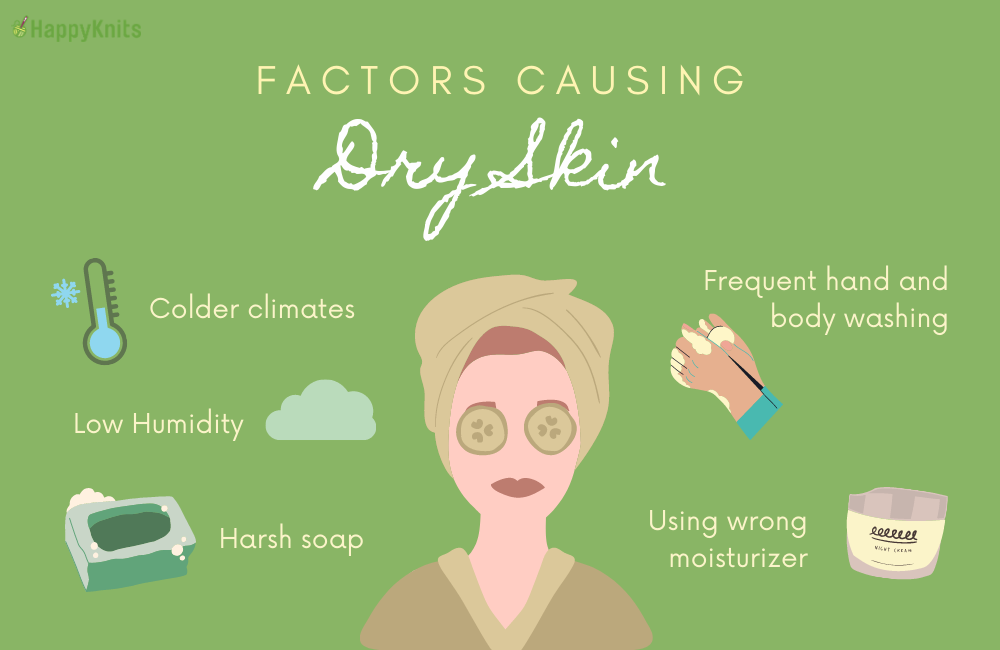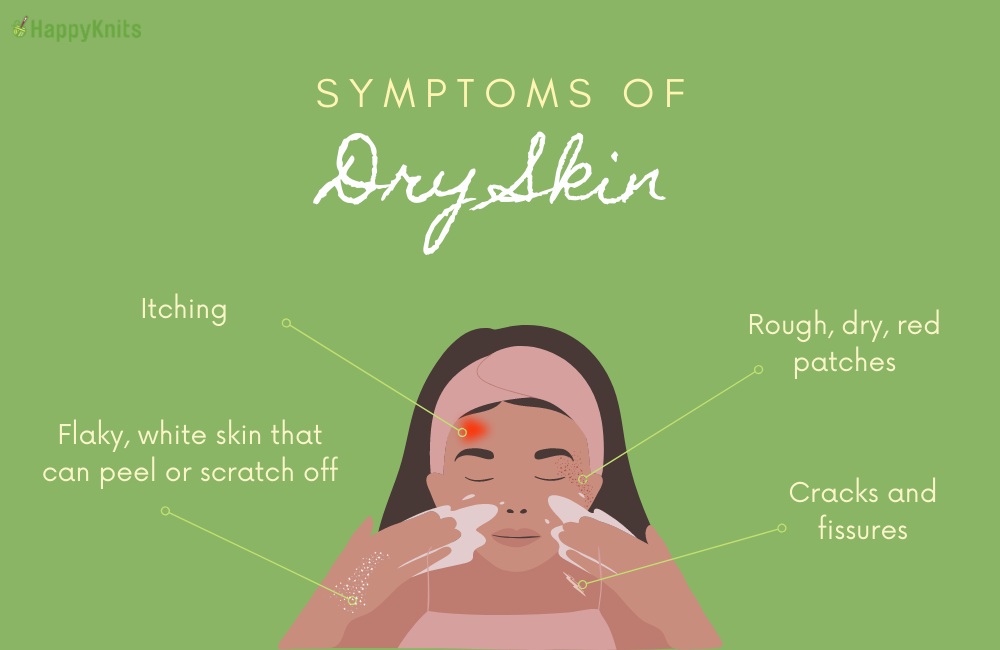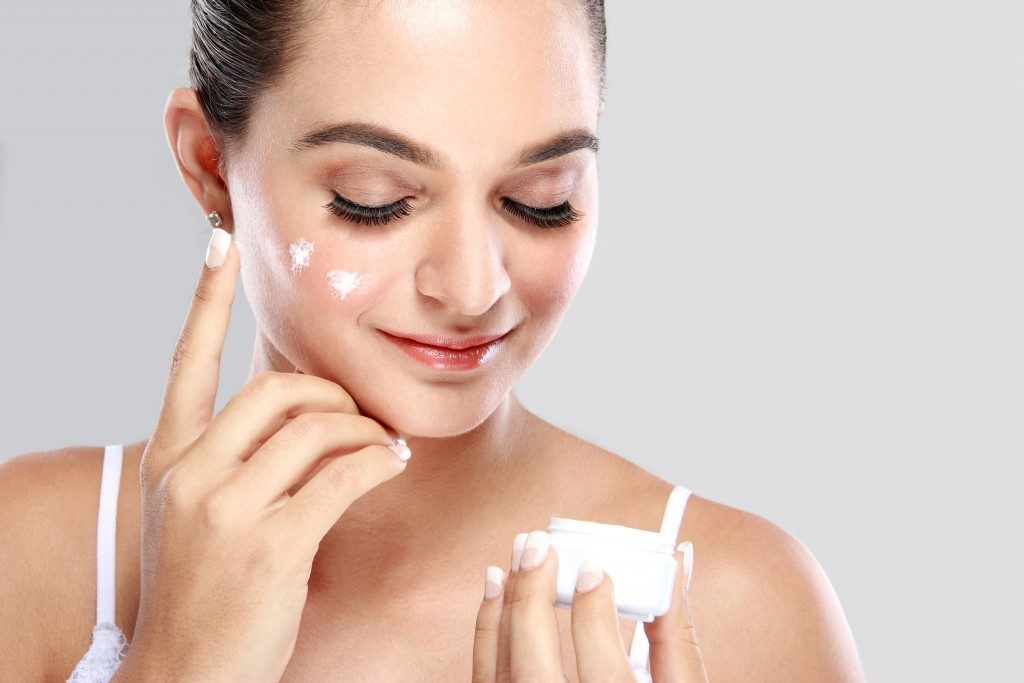Anyone can be a victim of dry skin. Not everyone is blessed with perfect skin or living in an environment free of factors that dry out your skin. While dry skin isn’t necessarily a cause for concern and is usually a temporary problem, others may find that their dry skin doesn’t go away despite efforts to have it remedied. It can also affect your skin and how it looks, which can affect your self-esteem.
The best way to keep your skin looking and feeling fresh is to provide it with proper skincare products and routines, nourish it with the right nutrients, and avoid practices that can cause drying out your skin. Here’s what you need to know about dry skin, natural ways to moisturize your skin, why your skin is dry, and what you should avoid to help improve your condition.
What Causes Dry Skin?
Dry skin is a common condition for people of all ages and sexes. While genetics may have a role in your skin condition, your dry skin may also be caused by the environment you live in and other triggering factors you’re exposed to.
Naturally, your body has glands that should keep your skin moist. Underneath your skin and scalp are sebaceous glands that release an oil known as sebum. These oils travel through your hair to the external part of your skin, where it seals in your natural moisture and prevents it from growing dry.
Dry skin may be caused by two possible reasons: your body isn’t producing enough oil to keep your skin moisturized; or you are in an area where the climate or other external factors are drying your skin out too fast for your body to create enough oil.
Some factors that can cause dry skin include:

- Colder climates or winter season – the climate, weather, and humidity of colder climates and seasons cause the air to become cold and dry. This can cause your skin’s moisture to evaporate faster than usual.
- Low humidity – this can cause your skin to dry out faster.
- Frequent hand and body washing or using harsh soap- some soaps are designed to remove all the oil on your skin. If you’re washing your hands or body frequently, you might not be giving your skin enough time to replenish your oil. This is a more common cause for the skin on your hands since your hands and feet have little to no sebaceous glands.
- Using the wrong moisturizer – there are moisturizers for different types of skin. Using the wrong kind can have a drying effect on your skin.
- Stress – stress is never a friend of the mind. The same holds true for your skin. Stress triggers a spike in cortisol and adrenaline. The increase in adrenaline causes you to sweat more, which can dehydrate your skin.
There may also be symptoms of dry skin that aren’t external and can’t easily be changed without the help of a medical professional. These include:
- Genetics and family history – having dry skin (or sebaceous glands that do not produce enough oil) may be hereditary.
- Age and sex – it’s not clear how, but age and sex may have a factor in causing dry skin. One possible reason may be because males have thicker skin than females, which can affect oils and why men are more prone to dry skin.
- Underlying health conditions – conditions like diabetes and thyroid diseases can affect your glands and hormones, which can cause dry skin.
- History of skin conditions – having eczema, dermatitis, and other skin conditions can affect your skin.
Symptoms of Dry Skin

You should consider trying some of the natural skin moisturizers if you experience any of the following:
- Itching and inability to stop scratching
- Rough, dry, red patches on your skin
- Flaky, white skin that can peel or scratch off
- Cracks and fissures on your skin
Most common cases of dry skin don’t necessarily end up with severe symptoms and can go away with proper moisturizing. However, excessive scratching can lead to sores and open wounds, which could lead to infection if not treated carefully.
Do’s and Don’ts for Dry Skin
- For severe redness and itching, go see a dermatologist. You may be prescribed prescription ointments, lotions, and moisturizers meant for more extreme cases of dry skin.
- If trying out one of the natural moisturizers for dry skin, try a small sample on your skin first. Rub a small amount on your arm and leave it for 24 hours. If your skin shows no negative reaction, you can safely apply it to your face. While natural moisturizers don’t have inorganic chemicals in its ingredients, you may still unknowingly be allergic to some natural substances.
- Avoid showering in very hot water, this can dry out your skin. Also, try to practice applying moisturizing immediately after bathing.
Keep your skin clean, clear, and properly moisturized. If you have dry skin, it doesn’t necessarily mean you have bad hygiene habits, but you may be exposed to factors that cause your skin to go dry. Fortunately, moisturizers can save the day. But if you’re not a big fan of the chemical ingredients most traditional moisturizers have, there are natural ways to moisturize.
Natural Ways to Moisturize Your Skin
Coconut oil

Coconut oil is an excellent moisturizer for both your face and body. It has anti-inflammatory properties that are perfect for people with dry skin. It also contains lauric acid, which penetrates the skin to give it the nourishment that it needs.
Honey
Honey also penetrates the deeper layers of the skin, making it an effective moisturizing agent. With its antioxidant properties, honey cleans up your pores and restores your skin’s glow.
Shea butter
Shea butter is a great source of vitamins A and F, which help in alleviating dry skin. It also provides the skin with protection from the harmful effects of harsh elements. Just make sure that the shea butter you use has not expired yet before you lather it on your skin.
Avocado
Avocado isn’t just perfect for guacamole; it’s the best for your skin, too. Avocados contain high levels of vitamins and fats that help the skin keep the moisture it needs. It has anti-aging properties, too. You can either rub the inner side of the peel or use it as a face mask for at least 15 minutes.
Cucumber
Cucumbers are a great source of water and vitamins A and E. They are mostly used to get rid of puffiness around the eyes. But you can also puree them to make a hydrating and anti-wrinkle face mask.
Aloe vera
Aloe vera is another natural ingredient used in various skincare products nowadays. It does not leave a greasy residue while keeping your skin plump at the same time.
To use it, cut and peel a part of the aloe vera so you can expose the gel inside. Then, rub it on your skin as gentle as possible.
Oatmeal
Oatmeal is great for not only breakfast but skin care as well. It is a natural moisturizer that helps reduce skin inflammation and irritation. It contains natural lipids that can soften the skin and keep the moisture in. All you need to do is to pour one cup of oats into your bath water and indulge in it. But ensure that you scoop out all the oats after you take a bath so that you will not clog the drain.
Sugar
You can make your own facial scrub by mixing half a cup of sugar with three tablespoons of olive oil. This will help exfoliate your dry skin and remove your dead skin cells.
There are many other natural remedies that you can try at home to keep your skin moisturized. You can combine these ingredients with your favorite skincare products for even better results. This will provide you with healthy-looking skin without you having to spend much. While it might take a few weeks before you see results, you can be sure that everything will be worth it in the end.
Perks of Natural Moisturizers for Your Skin
First, when you base your skincare routine on a natural moisturizer origin, you can get rid of flaky and dried-out dead skin. External elements affect the way our skin looks and feels. Leaving your skin dry and unprotected can lead to skin discolorations. A natural moisturizer can leave your skin hydrated and glowing. Pay attention to hydration to keep your skin looking fresh.
Second, many people have sensitive skin, which means moisturizers made from chemicals aren’t always the best skincare option. Sensitive skin gets itchy and irritated more often than normal skin does. Natural moisturizers have skin-calming effects that keep the aforementioned problems under control, as well as keep acne at bay.
Finally, sun protection is essential! Regardless of the time of the year, you must protect your skin from the sun’s damaging rays. Using moisturizer reduces your risk for sunburn, as well as your risk for developing skin cancer.
When it comes to battling dry skin, Mother Nature is by your side. Enjoy smooth and younger-looking skin by naturally moisturizing it every day.

